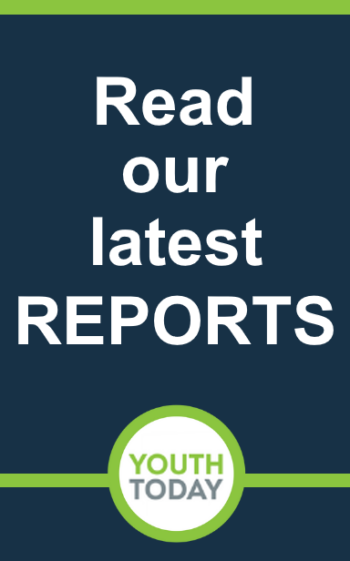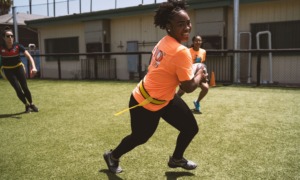The Robert Bowne Foundation had a deep respect for the commitment and experience that community-based practitioners bring to their programs even as many of them lacked formal educational training. As a result, Foundation staff created professional development opportunities that built on practitioners’ strengths, exposed them to up-to-date research and methodology, addressed their questions and concerns, and provided opportunities to interact directly with fellow practitioners, sharing approaches and insights.
The Robert Bowne Foundation developed professional learning communities comprised of grantee participants – engaging them in asking and studying their own questions – a central RBF strategy to build capacity among both program and management staff.
Action Research
RBF programs were designed explicitly to support practitioner action research. From 2002-2006, Suzanne Marten of the Center for Educational Options facilitated an Action Research Seminar for RBF grantees. In a July 2011 interview, she describes the process:
“The core of the idea [of the Action Research Seminar] was inquiry. People had questions about their work. People came together from different [afterschool] programs…as a group and worked to articulate a question, think about collecting data to help understand what they were looking at, analyze the data and then ask, ‘So what? What does it suggest?’
They could go through this process once in a cycle or five times in a cycle depending on how the question worked out. We set up the process using the steps of Action Research. The content came from the programs …”
Each year, each participant creates an action research question to focus his or her inquiry throughout the year-long seminar. Participants use such questions to guide their data collection, experiments with program changes, observations, reflections, and revisions to activities based on what they have learned from their action research. Participants who are researching similar program questions get together to form supportive learning communities, sharing ideas and providing differing perspectives about shared quandaries.
Afterschool Matters Initiative
In 2003, RBF launched its Afterschool Matters Initiative with the aim of stimulating research in the area of OST education. The initiative grew out of an effort to find practitioners willing and able to generate articles for RBF’s journal Afterschool Matters. As described by Jane Quinn, RBF Board Member, in a 2006 report to the RBF Board, the nitiative aimed to encourage research that would:
- Focus on describing and analyzing program activities conducted by OST practitioners;
- Explore new theoretical constructs appropriate to the OST context as well as generate new language for describing the learning environment of OST programs; and
- Consider the potential of OST programs to promote positive youth and community development.
Sara Hill, as RBF Research Officer, worked with several cohorts of practitioner Research Fellows, developing a curriculum to help spur their own research of the programs they worked with as well as establishing a professional writing retreat where they focused on translating their research into journal articles. In addition, the Afterschool Matters Initiative: promoted academic research through the Foundation’s Edmund A. Stanley Research Grants; spearheaded the establishment of an OST Special Interest Group (SIG) of the American Educational Research Association (AERA); and held several Research Roundtables — meetings that brought together practitioner-researchers with university researchers.
The Associate Executive Director of a Settlement House describes the impact of the Fellowships:
“We have four staff who went through Research Fellowships [where they were expected to] ask a question and inquire into it… You can’t find your own answers if you can’t ask your own questions.
“[The Fellowship] provided a space for us to understand what we do– to put it into words and articulate it. In the afterschool field, we do a lot that we don’t have language for. When asked what we do, we give activity lists. But to be able to articulate and describe it allows us to do it intentionally– to be able to say, ‘We’re developing young people in this way and this is why.’”
Since 2007, the Afterschool Matters Initiative has been administered by The National Institute on Out-of-School Time at the Wellesley Centers for Women (NIOST). The curriculum and process based on teacher inquiry, originally developed by Sara Hill for the New York City Fellowship, has been adopted and adapted by Fellowships conducted in conjunction with the National Writing Project and local intermediaries in Philadelphia, Minneapolis, the San Francisco Bay Area, Seattle, Pittsburgh, New York, and New Jersey.
According to Lena Townsend:
“Practitioner research – and hence practice–continually evolves as the context, community, staff, and needs of participants change. The inquiry stance of the RBF both respects and encourages program practitioners to formulate and study their own questions – and thereby remain active, relevant actors in their own efforts and in the lives of the youngsters with whom they work.”
LINKS:
- Video: Coalition for Hispanic Family Services Arts & Literacy staff member Melissa Wilhoit describes her action research investigation and the program changes it led to as a result of her experience in the Robert Bowne Foundation Action Research Seminar facilitated by Suzanne Marten from the Center for Educational Options.
- Snapshot: Examples of Research Fellowship Process in Action
- Video: Interviews with Philadelphia participants in the Afterschool Matters Practitioner Fellowship
- Archive of articles written and published by National Afterschool Matters Practitioner Fellows.



















